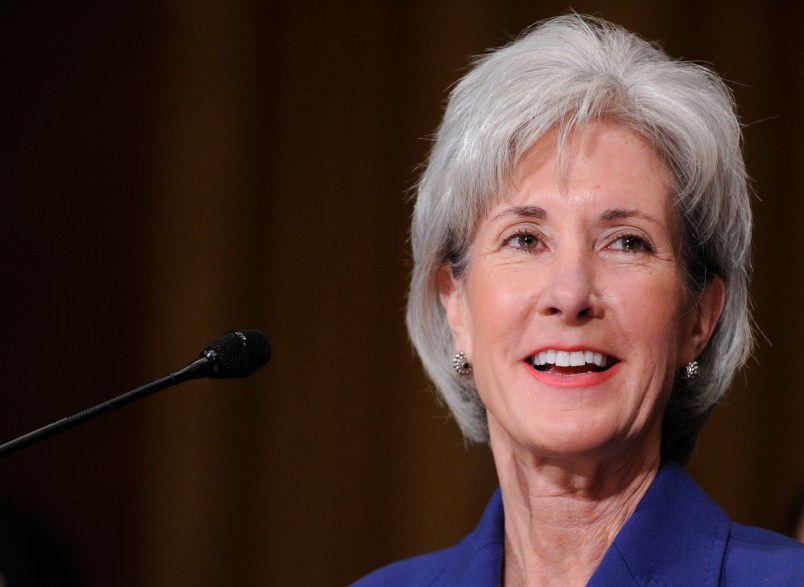WASHINGTON (AP) — Trying to head off more bad news over the chaotic rollout of President Barack Obama’s health care law, the administration Thursday offered stopgap options so people whose existing plans got canceled are not penalized.
Health and Human Services Secretary Kathleen Sebelius said in a letter to a group of senators that she will use authorities in the law to issue a “hardship exemption” from tax penalties to those who received cancellations and were not able to line up new coverage.
The administration is also opening up a special coverage plan created under the law for young adults. Regardless of their age, Sebelius said people whose plans were canceled will be able to buy a bare bones catastrophic plan intended for those under 30.
Additionally, the department is setting up a dedicated hotline for those who got cancellations, at 1-866-837-0677.
The insurance industry immediately criticized the moves.
“This latest rule change could cause significant instability in the marketplace and lead to further confusion and disruption for consumers,” said Robert Zirkelbach, spokesman for America’s Health Insurance Plans. Only Wednesday, the industry had announced its own accommodation — giving consumers an extra 10 days to pay January’s premiums.
The Oct. 1 launch of the HealthCare.gov website became an embarrassment for the administration after problems with the online gateway to coverage froze out millions of potential customers. But the biggest political damage to the president has come from cancellations issued to at least 4 million people who had individual plans they purchased themselves. Those plans did not pass muster under the health care law, which generally requires more robust benefits.
Obama was roundly criticized for reneging on a longstanding promise that if you liked your plan, you would be able to keep it under his health care law. The president apologized, and then said insurers could extend those plans for one more year. Most state regulators followed Obama’s lead and gave insurance companies the additional latitude, but it’s unclear whether the problem has been fully resolved.
Although the website is now working more smoothly, there’s still a concern that technology problems may prevent some people who got cancellations from signing up for a new plan. Consumers have until Dec. 23 — Monday — to pick a plan if they want their coverage to take effect Jan. 1, thus avoiding a break in coverage. The industry says it will accept payment of the first month’s premiums until Jan. 10. Timely payment is required for the new plan to take effect.
“There still may be a small number of consumers who are not able to renew their existing plans and are having difficulty finding an acceptable replacement,” Sebelius wrote Sen. Mark Warner, D-Va., and several of his colleagues, adding: “These consumers should qualify for this temporary hardship exemption.”
Separately, the administration on Thursday estimated at less than 500,000 those who have not yet found other coverage in the wake of seeing their coverage canceled. More than 4 million people have had their plans canceled because their coverage does not meet the new standards under the law.
Democrats praised the latest steps as a commonsense backup in a difficult situation. Republicans panned the administration action as another patch to an unworkable law.
Insurers are concerned that healthy customers who potentially would have bought full coverage may now stay out of the market, leaving the companies with a group of patients in worse health overall.
Copyright 2013 The Associated Press. All rights reserved. This material may not be published, broadcast, rewritten or redistributed.






